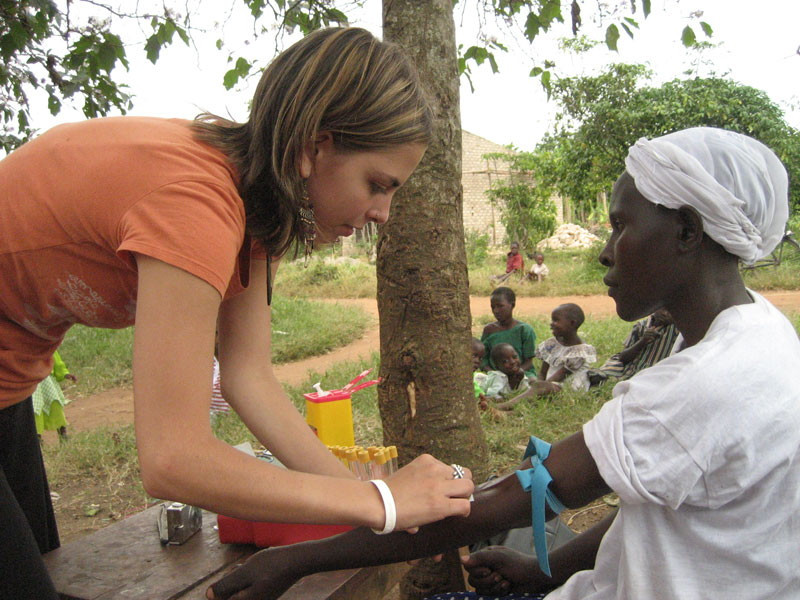When age doesn’t matter
Student founds NGO, brings empowerment to Uganda
In the heart of Uganda, one 21-year-old Winnipegger and her foundation are making a difference in the lives of many.
Katie Muirhead is a second year student at the University of Winnipeg and the president and founder of Kwagala Foundation, a non-governmental organization (NGO) dedicated to supporting communities in Uganda in their search for sustainable living.
Muirhead founded Kwagala in 2006, after her experience volunteering with a few organizations in Uganda showed her the demand for aid wasn’t being met.
“I knew I didn’t want to go to university right away, because I didn’t really know what I wanted to do, so I decided to do some volunteer work,” she said. “Once I got there it all felt right, it felt like there was something there.”
Upon returning to Winnipeg, Muirhead geared everything she had towards the foundation.
“I’ve completely dedicated myself to it; everything, all the way down to the courses I take, is done so that I am better equipped to run the organization.”
“ We’re not here as saviours. These people can live and provide for themselves.
Katie Muirhead, Kwagala Foundation
Muirhead is enrolled in the human rights program at the University of Winnipeg’s Global College.
She attempts to channel theory into practice through her NGO. One initiative is the Piglet Forward program, which provided a male and female pig for each of 14 Ugandan families.
The pigs can be used freely for reproductive purposes; but once a pig couple produces a litter, the family must give a new family another couple of piglets so that they can continue the chain.
“This way, each family gets to keep a few pigs each litter and can use them for breeding purposes, meat, or sell them,” Muirhead said.
She is considering expanding the program to chickens and other livestock.
Muirhead hopes Kwagala’s focus on sustainable empowerment initiatives will create ripple effects.
“Ideally, I would love it if in 10 years Kwagala didn’t exist because we aren’t needed anymore. If we can help people to the point that they can help other people, then we’ve succeeded.”
Muirhead’s sees the role of humanitarian aid as inspiring and not just helping.
“We’re not here as saviours. These people can live and provide for themselves, providing that they have the resources to do so,” she said. “We go in and ask, ‘What would you like done,’ or ‘What do you need done,’ and we evaluate the situation to see if we can help them accomplish that goal.”
While her organization’s success draws many willing volunteers, Kwagala’s small size and budget stop her from taking them all in.
“We don’t have a base in Uganda—we just stay in hotels—so it becomes even more difficult to bring anyone along with us,” she said.
External problems also play a role. Muirhead is concerned about animosity and spill-over effects from neighbouring countries.
Still, she remains optimistic.
“We are going to be able to bring a couple more volunteers this year who specialize in various fields (carpentry, medical care, etc.), and we continue to make progress.”
Muirhead has simple advice for aspiring development workers.
“Remember that these aren’t your ideas, you’re not the solution; they are. If you’re going to go anywhere and do anything, make sure you listen. In order to get involved you have to listen.”
Published in Volume 63, Number 18 of The Uniter (January 29, 2009)







